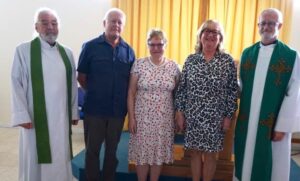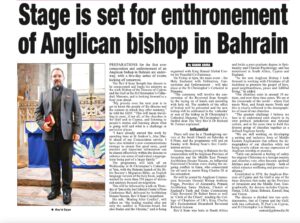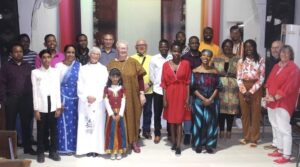On arrival, we were immediately aware that, despite the pandemic, physical distancing and mask-wearing were far from widespread. Life seemed to be continuing almost as if Covid-19 didn’t exist. For Yeminis, Covid was clearly just another health issue, taking its place alongside malnutrition, dengue fever and cholera. And for the first time I appreciated just how privileged I was to be able to be concerned about Covid. The realisation was humbling.
My first impressions of the city itself were fleeting ones – seen through a car window.
War damage and poverty were evident. Many buildings were ravaged. Wayside bushes were coated in such vast numbers of plastic bags, that they almost seemed deliberately decorated. Family groups sat on the ground by the road. Children played with balls or sticks among mounds of rubble, while dogs searched nearby for scraps of food. The cries of ravens provided a desolate soundtrack.
Yet what struck me most were the contrasting images. In one place, alongside the torn buildings we saw apartment blocks where washing was hanging out to dry; in another, a makeshift stall flamboyantly displaying children’s pink swimming rings was beside a damaged building. Elsewhere, adjacent to a military checkpoint, was a funfair. There was juxtaposition upon juxtaposition. Despite the struggle, people were resolutely going about their everyday life.
This overriding sense of hope and faithfulness was articulated to us as follows: ‘We Yemenis have reason to give thanks five times a day. . We give thanks when the water comes on. We give thanks when we have electricity… when there’s fuel for our tanks…’
We visited Aden primarily to see the Ras Morbat Clinic, which is on the Christ Church compound. While church services haven’t been able to take place for a number of years, the small clinic is very much in operation. Each morning, before eight o’clock, we saw people, old and young, gathered in the outdoor seating area waiting quietly to be seen by the medical team.
Since 2014, Ras Morbat has focused exclusively on eye care encompassing general eye examinations, prescriptions for lenses, medication, surgery for cataracts and trauma injuries, and post surgical treatment. Ras Morbat operates an open-door system: it treats everybody. Those who can, pay a small sum to see the doctor. But even that small sum is waived, if needed.
The clinic staff, who are Muslim, treat local people in the name of the church. The clinic is widely recognised both for its fine work, and for being run by the church. Many people come there from very long distances because of its reputation. In conversations outside the compound, the esteem in which Ras Morbat was held was evident to us. We were so warmly welcomed in its name.
Time spent with the clinic staff was necessarily limited because they were so very busy. Sharing a tea break together, we were particularly struck by two aspects.
First and foremost was the team’s sense of vocation. Staff members spoke movingly of their commitment to finding the best possible ways of treating patients, irrespective of their ability to pay. And second, under the compassionate leadership of the clinic director, Mansour Yousuf, was the depth of their care for one another, as well as for the patients. Here ‘I feel that I am in my family,’ one of the doctors explained simply.
The clinic staff see their work as nothing less than blessed by God. For so many Yemenis who have every reason for lament, the Ras Morbat team members are the embodiment of hope. Please do hold them in prayer, together with all the people of Yemen.•
Video of Anne’s Visit – click HERE



